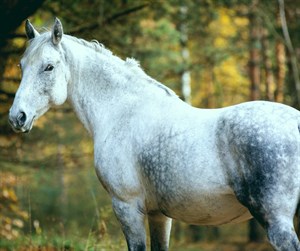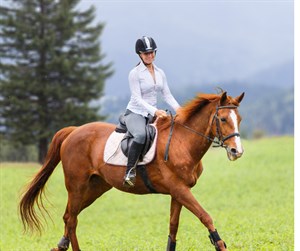|

Supplied by Antoinette (Foster Dip Nut Equine Nutritional Therapist and Medical Herbalist) and Erin Romanin (Clinical Nutritionist)
Ageing is a complex phenomenon which is a natural part of life, but chronic disease and illness doesn’t always need to be. The average life expectancy of a horse is around 25-30 years although this is far from an indication of their overall health.
Like people, horses may or may not develop health conditions as they age, depending on genetics, nutritional status, history and fitness.
As horses get older it is common for things to start slowing down and for them to be not as strong as their younger days. Their digestive system may reduce in function and absorption rates can drop which can reduce their immunity. There may be an increased breakdown of their joints and muscles, depending on what they have done throughout their life so far.
Chronic systemic inflammation is a significant part of ageing which is commonly accepted in people but not usually discussed in horses.
Chronic low-level inflammation throughout the lifespan can occur from a myriad of environmental, genetic and nutritional causes and can contribute to the onset of inflammatory conditions such as arthritis, chronic pain, Cushing’s Disease, gastric ulcers and laminitis, just to name a few.
So what can we do about it?
By feeding your horse a high roughage diet (quality hay, long-stem chaffs and pasture) including what they would naturally consume, you will be significantly reducing potential levels of inflammation.
Although it may be enticing to feed your beloved old friends a warm porridge-like meal this often does more harm than good. Although we have domesticated horses over time, their digestive system remains in its original format of requiring a high roughage content.
For most of the horses’ life, their teeth continuously emerge through the gums to replace what is worn away by chewing.
There is approximately 2-3 inches of replacement tooth under the gumline. However, when the horse reaches its mid-20s, the reserve is often depleted, leaving them at risk of tooth loss.
Tooth loss compromises digestion and their chewing ability, this is the only time where dampening their feed may come in handy as well as choosing softer hays and smaller chopped chaff, so they are able eat easily. This in combination with regular dentist check-ups should keep your horses happy.
Nutritional Supplements
As the horse ages their ability to absorb nutrients declines, therefore supplementation with good quality nutrients can be beneficial in maintaining appropriate levels.
Omega 3 fatty acids can play an important role in reducing chronic inflammation. Although the horse’s natural diet has a higher omega 6 (pro-inflammatory) to omega 3 ratio, it is important to note that we have domesticated horses to do things they wouldn’t otherwise do in the wild, that may increase their levels of stress and therefore inflammation.
This is where supplementing with omega 3s may be beneficial in reducing systemic inflammation. Flaxseed/linseed oil and chia seed oil are the best plant-based sources for horses, it is best to get a nutritionist or veterinarian opinion to see if this may be suitable for your horse. Just be sure to steer clear of any marine based oils as horses are herbivores and not fishermen.
Increasing antioxidants; vitamins A, C and E as well as selenium can assist in decreasing inflammation by improving the rate of detoxification and prevent the accumulation of toxins in the body. Although horses’ manufacture their own vitamin C, studies have found that as they age their natural levels of vitamin C decline. Although more research needs to be completed to investigate why this occurs, it gives us more insight into the importance of supplementation.
Exercise

Exercise for the older horse
Horses over the age of 12 are more likely to experience pain at a higher level. As horses age, there is a higher risk of injury and pain-related conditions, including degenerative joint disease, hamstring injuries, tendon ligament damage, back pain and muscles soreness, to name a few.
Consistent low exertion exercise has been shown to be the most beneficial for older horses
Managing these pain-related issues is essential to avoid the escalation of other problems. Every horse should be given assistance to prevent and manage pain. This can be achieved by regular bodywork.
Although the musculoskeletal system of the horse loses strength as they age, if your horse isn’t showing signs of slowing down, then there is no reason to send them into early retirement.
Exercise like nutrition is one of the easiest ways we can improve our horses’ health. Not only does exercise keep our horses (and ourselves!) fit, there are also many other benefits it provides.
Studies have found consistent low exertion exercise to be the most beneficial for older horses due to the changes in the type of muscle fibre away from the type that assists with endurance exercise.
Both diet and exercise can play a pivotal role in your horse’s health and longevity. It is important to always consult a qualified and reputable nutritionist or veterinarian before starting your beloved companions on a new feed regime for individual dietary advice.
Supplied by Antoinette Foster Dip Nut Equine Nutritional Therapist and Medical Herbalist
Source: Equestrian Australia
READ THE LATEST NEWS ARTICLES HERE

|

